What would be better practice when giving a function the original variable to work with:
unsigned long x = 4;
void func1(unsigned long& val) {
val = 5;
}
func1(x);
or:
void func2(unsigned long* val) {
*val = 5;
}
func2(&x);
IOW: Is there any reason to pick one over another?

